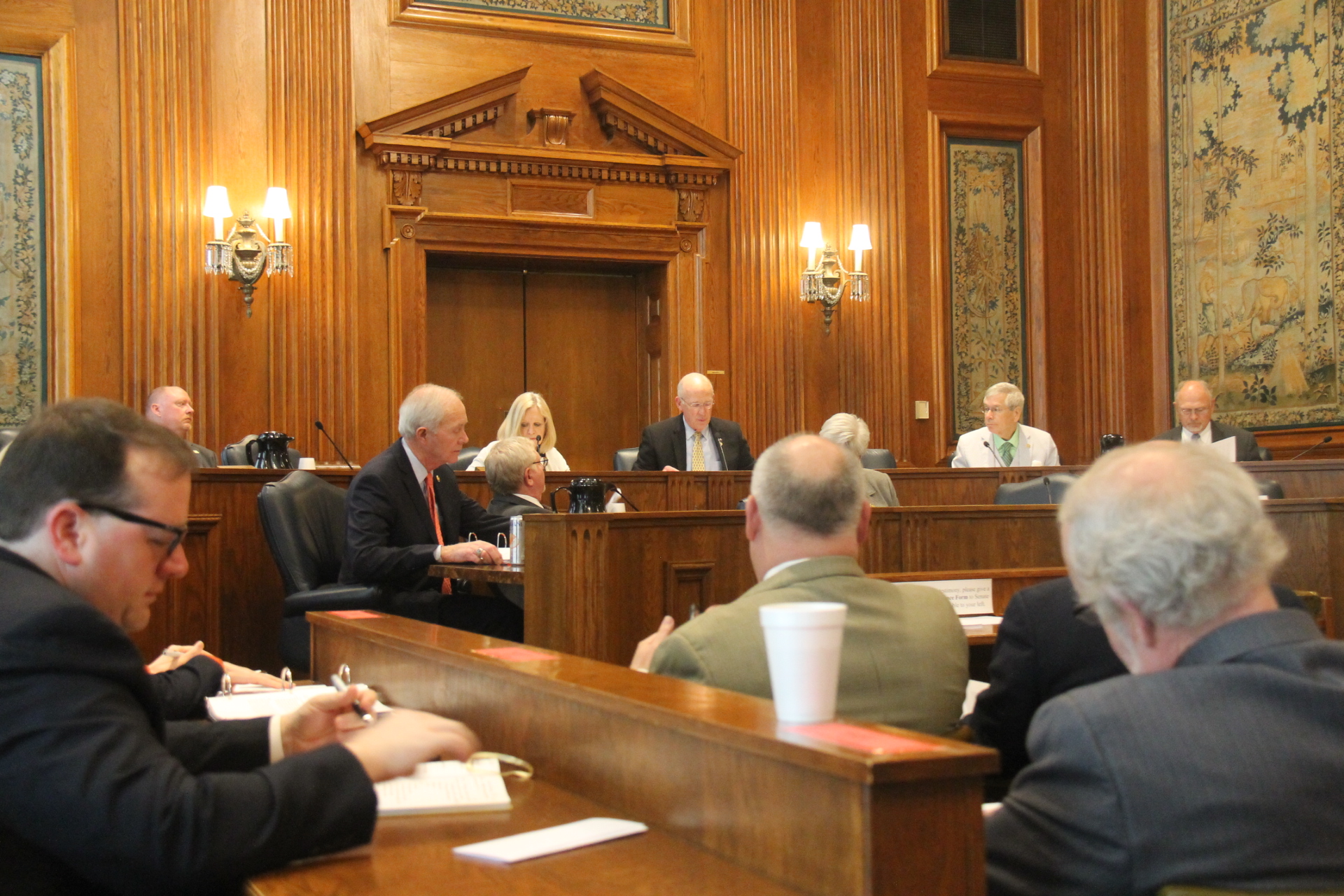JEFFERSON CITY, Mo. – It’s been nearly a decade since a bill dealing with utilities passed through the Missouri General Assembly, according to Rep. T.J. Berry, but 2018 has seen a more targeted push to pass rate adjustment mechanisms for Show-Me State utilities.
The Senate has already passed Sen. Ed Emery’s SB 564, which is now sitting in the House. And the House has taken HB 2256, which began as a carbon copy of the Senate bill, has now been amended and passed out of that chamber and turned over to the Senate.
That bill was heard for the first time in the upper chamber on Wednesday, as the Senate Committee on Commerce, Consumer Protection, Energy and the Environment took up the legislation.
The bill has some subtle differences from the original version, with the Senate version allowing for 85 percent recovery by the utilities compared to the House’s 50 percent recovery. The difference between the two is because the House bill has no offsets, where the Senate version still carries some. It also includes a provision for programs or rate adjustments to assist low-income residential customers and smart metering.
But knowing that everyone was already familiar with the language, the conversation turned to what changes might be made to the House version. Berry, as the sponsor of the House bill, was asked about a number of possible changes and whether he would be open to the amendments, including some opt-out clauses and other provisions.
Sen. Gary Romine asked if the offsets had been inadvertently left out, to which Berry replied that he believed so.
“Several parties, both sides of the issue, came to me and said the House language was not good language,” he told Romine.
He explained that he asked both sides for language, and swapped it out, but within hours, one group was back saying it wasn’t good.
Romine asked if the Senate could reset the bill and have those offsets added back in, to which Berry replied that they would have to, as the House is no longer in a position to amend the language.
Romine also inquired about the number of surcharges and what would happen if they exceeded the proposed cap rates, which would then be deferred.
“We may have caps, but in these particular issues, the utility companies will be able to retrieve those,” Romine said.
Sen. Jamilah Nasheed asked about the common ground for the bill, and whether a bill could pass this year, as this has been an ongoing attempt for years. She inquired about how far apart the two sides were, to which Berry replied that the language has remained the same, the only debate was the amendments.
“Not everybody likes this bill, I understand that. But both sides gave pieces to get to this point,” he said. There’s still plenty of disagreement, but not the heat that has been there in previous years.”
He noted that in prior years, the bill has been in excess of 80 pages. This year, it started at roughly 17, and now sits at 30 or so. Berry told the committee that he believed his bill is a better bill than the Senate version that had been passed out of the chamber earlier this session, but that sentiment was not shared by all.
David Woodsmall, representing the Midwest Energy Consumers Group, said the House version was actually worse for customers than the Senate bill. He argued that, because of the missing offsets, it could cost customers up to $30 million per year.
To address the issues he saw, he suggested the five following fixes:
1. Apply PISA to 50 percent of the investment, but apply the offsets
2. Make the rate caps a hard cap
3. Return the definition of eligible customers in the decoupling mechanism
4. Make it competitive bidding provision to both Ameren and KCP&L by eliminating the 1 million customer threshold
5. Eliminate provisions for nuclear environments
Still, Berry explained that the House’s intent was to hold the Senate version of the bill at the ready for when the Senate cannot get the House version to a place where everyone can agree. For some, this means a second chance for the Senate to try to reach a new compromise, but in that process, they’ll be doing so with their prior bill being held over their head.
Benjamin Peters was a reporter for The Missouri Times and Missouri Times Magazine and also produced the #MoLeg Podcast. He joined The Missouri Times in 2016 after working as a sports editor and TV news producer in mid-Missouri. Benjamin is a graduate of Missouri State University in Springfield.










